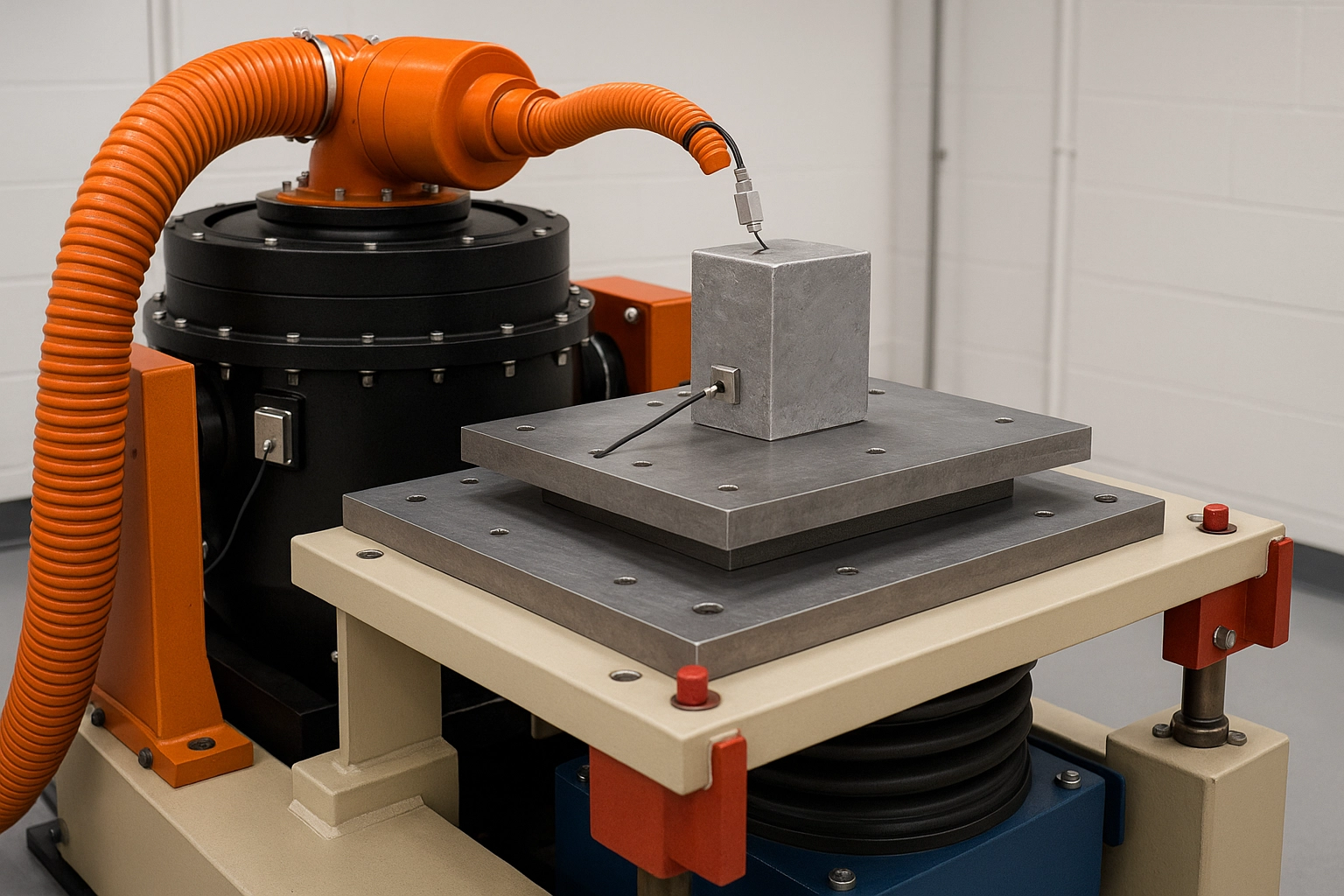JIS K7113 Random Vibration Testing for Automotive Plastics
The JIS K7113 random vibration test is a critical procedure in automotive testing that ensures the reliability and durability of plastic components. This test evaluates how well these parts withstand mechanical shock and random vibrations, which are common stressors in an automobile's operational environment.
Automotive plastics play a vital role in vehicle design due to their lightweight properties, cost-effectiveness, and versatility. However, they must also be resilient enough to endure the rigorous conditions of daily use. The JIS K7113 test provides manufacturers with a standardized method for assessing this resilience by subjecting samples to controlled random vibrations.
The testing process involves simulating real-world operational conditions using specialized equipment that can generate high-frequency, low-amplitude vibrations across multiple axes. This randomness mimics the unpredictable nature of automotive environments and helps identify any potential weaknesses or failures in the plastic components before they reach end-users.
During the test, specimens are mounted on a vibration table that oscillates at various frequencies and amplitudes within specified limits defined by JIS K7113. The amplitude and frequency distribution characteristics depend heavily on the application type of the component being tested. For instance, dashboards require different parameters compared to seat belts or airbag housings.
Post-testing evaluation focuses on assessing changes in dimensions, appearance, functionality, strength, and overall integrity of the plastic samples. Any significant deviations from initial measurements may indicate issues that need addressing during manufacturing processes or material selection.
The JIS K7113 random vibration test is essential for ensuring consistent quality across mass-produced automotive parts worldwide. By adhering to this standard, manufacturers can demonstrate their commitment to producing reliable products capable of withstanding harsh conditions without compromising performance.
Adhering strictly to industry standards like JIS K7113 helps maintain uniformity in testing methodologies among various laboratories globally. This consistency fosters trust between suppliers and customers while promoting fair competition within the market.
- Sustainability: Conducting rigorous tests ensures that only robust materials are used in vehicle construction, reducing waste associated with failed components.
- Eco-friendliness: Reliable parts contribute to longer-lasting vehicles, which ultimately results in lower resource consumption over time.
- Circular Economy: Robust testing practices support the development of recyclable materials that can be reused effectively throughout multiple lifecycles.
In summary, JIS K7113 random vibration testing is a cornerstone of modern automotive manufacturing. It guarantees that plastics used in vehicles meet stringent quality and reliability standards, contributing significantly to safer and more efficient transportation solutions.
Quality and Reliability Assurance
The primary goal of JIS K7113 random vibration testing is to ensure the highest levels of quality and reliability for automotive plastics. This test plays a crucial role in preventing early failures and ensuring consistent performance over time.
Manufacturers must adhere strictly to the specified parameters outlined in JIS K7113 when conducting these tests. Failure to do so can lead to non-conforming products, which not only affect customer satisfaction but also result in costly recalls.
To achieve optimal results from this testing method, proper sample preparation is essential. Before initiating any vibration test, specimens should be thoroughly cleaned and inspected for defects or imperfections that could influence the outcome of the test. Additionally, ensuring correct mounting on the vibration table prevents errors caused by improper placement or alignment issues.
During post-testing analysis, it's important to compare the results against established criteria provided in JIS K7113. Any discrepancies must be investigated thoroughly to determine their cause and implement corrective actions if necessary.
The reliability of test data obtained through JIS K7113 random vibration testing contributes significantly towards improving overall product quality assurance efforts within automotive manufacturing processes. By incorporating this standard into daily operations, companies can enhance trustworthiness among stakeholders while contributing positively to the industry as a whole.
International Acceptance and Recognition
The JIS K7113 random vibration test is widely recognized internationally for its role in ensuring reliable automotive plastics. This standard has gained acceptance across various countries due to its rigorous testing procedures and consistent results.
Many nations have adopted the JIS K7113 protocol because it provides a uniform methodology for evaluating plastic components' ability to withstand mechanical shock and random vibrations. By adhering to this international standard, manufacturers can ensure their products meet global quality expectations without compromising on local regulations or preferences.
In addition to gaining widespread acceptance among industries worldwide, compliance with JIS K7113 enhances a company's reputation as a leader in producing high-quality automotive parts. This recognition fosters stronger relationships between suppliers and customers while promoting fair competition within the market.
Furthermore, by aligning their testing practices with internationally accepted standards such as JIS K7113, manufacturers can participate more effectively in global trade opportunities. The standardization of testing methods facilitates smoother interactions during international transactions since all parties involved understand exactly what is expected from each other.





